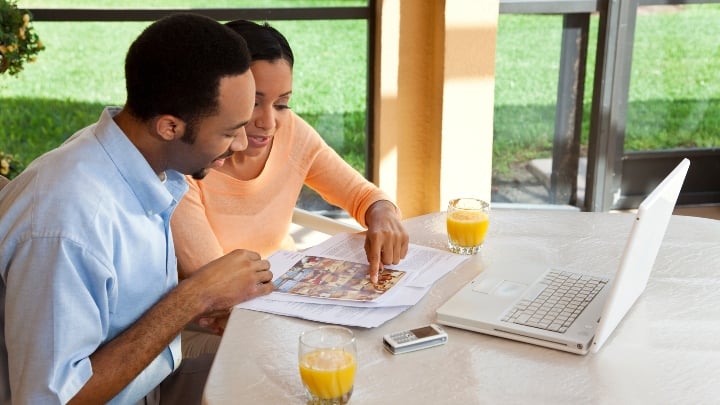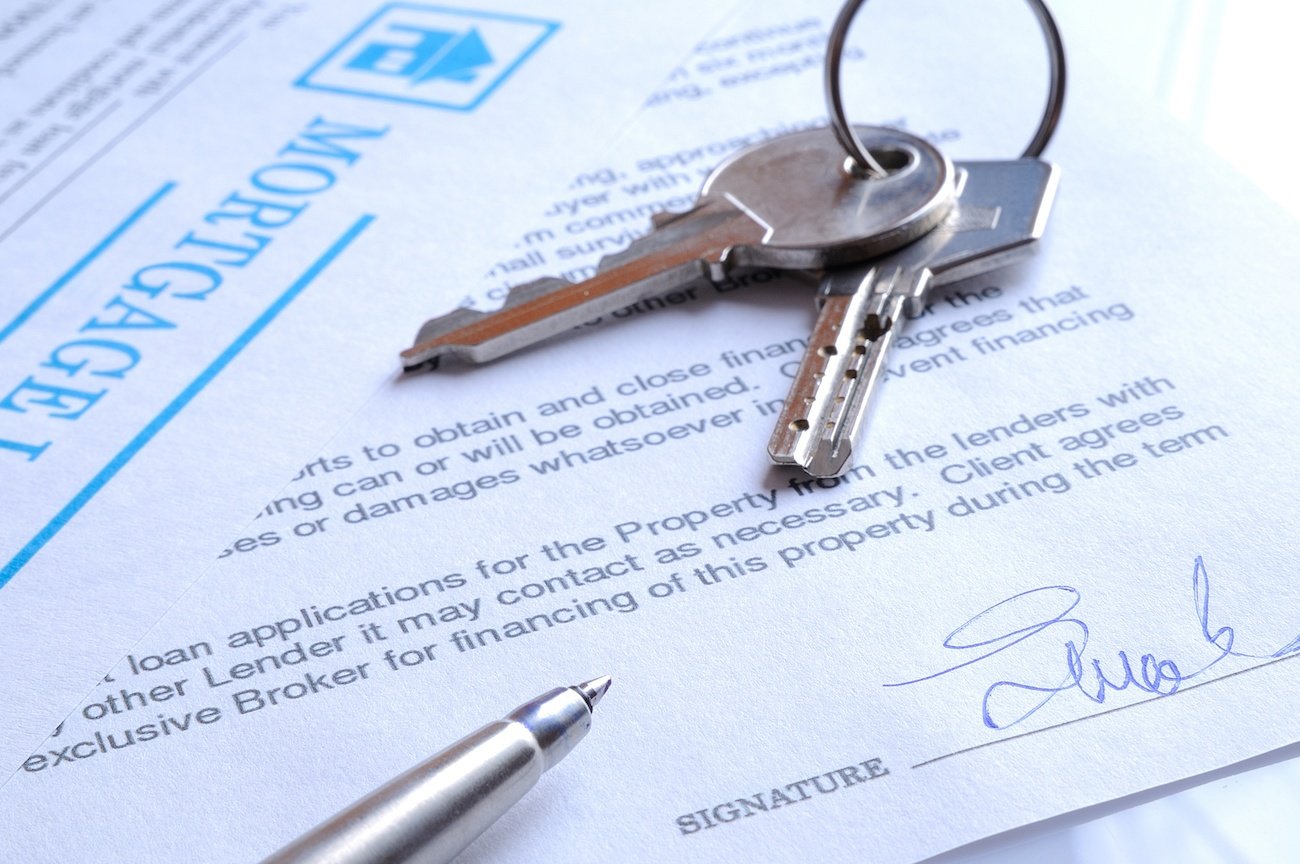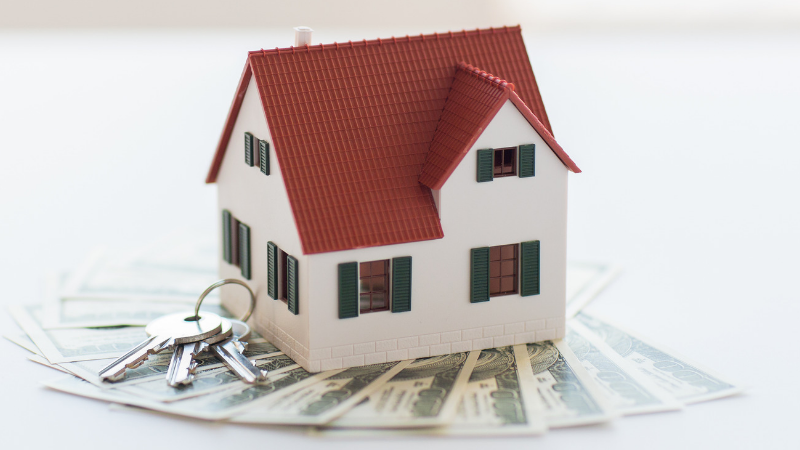What's a 'Good' Interest Rate on a First Home Mortgage?
Shopping for your first homeis an exciting experience. After all, it's the first place you can call your own! While finding a house that you're happy...
5 min read
 Twin Cities Habitat for Humanity
:
9:08 AM on June 26, 2024
Twin Cities Habitat for Humanity
:
9:08 AM on June 26, 2024

Buying a house can be one of the most exciting times in your life, especially if it’s your first home! It can also be overwhelming if you do not feel you have done enough research before diving in.
Learning the basics of real estate and getting an idea of what you want before you start searching for a home can save you time and keep you clear of headaches down the road. Here are a few house hunting tips to keep in mind as you begin your search. Once you’re out looking at houses, things tend to move (and get exciting) fast!
Cost will no doubt be the biggest factor in finding the right home for you. It will set the precedent for what kinds of amenities you can expect and the locations you'll want to look at. Do your due diligence here and consider every cost that goes into owning a home.
When people are ''saving up to buy a house,'' this is the part they are usually talking about. The down payment is the amount you pay upfront when buying a home. Since it's not part of your mortgage loan, a bigger down payment means you save money on your home and monthly payment since you do not have to pay interest on the down payment. There is a misconception that you have to put 20% down on a home, but this is not necessarily the case.
In fact, there are several down payment assistance options available to buy your first Minnesota home.
Closing costs when buying a home are expenses beyond the property's purchase price. Prior to your closing, you will receive a closing disclosure statement with specific fees listed. These costs can vary, but they often equal between two percent and five percent of the purchase price. This means, if you're buying a home for $100,000, your mortgage closing costs could range between $2,000 and $5,000.
While it's not technically a "closing cost,'' moving in general can be expensive. You might also want to consider budgeting for any furniture or décor that you need/want.
On top of figuring out what you can afford to pay on a house up front, you'll need to figure out what you can afford as far as monthly payments. You know you will likely have a mortgage, but that number is not the same as what your total monthly payment will be to own/maintain your home. A good rule of thumb is to spend no more than 30% of your monthly net income on housing. That includes your mortgage (plus interest), insurance, taxes, and utilities added together. While the price of your mortgage may stay the same if you have a fixed-rate mortgage, these additional costs can change. Make sure you can afford this calculated payment and more for the life of the loan.
It's also a good idea to have a "rainy day fund" for home costs specifically. Unlike with renting, anything that breaks down in your home is all on you to fix. Things like a burst pipe or a furnace issue can be expensive, and you don't want to find yourself in a position where you can't afford to take care of emergency repairs without sacrificing other areas of your budget.
Think about your basic needs in a home—number of bedrooms, bathrooms, fenced yard, etc. Then, determine what your greatest wants are—walk-in closet, walking distance to park or school, two-car garage. As you create your lists, think about neighborhoods and houses you like and whether they're on the market or not. Identify why you like those areas and houses.
Knowing what you like and why can help you stay focused on the bigger picture–house hunting can be a frustrating experience if houses you like keep getting snagged off the market or your offers get rejected. Many first-time homebuyers end up settling somewhere along the way as homebuyer fatigue sets in. Of course, it's okay to reassess and edit this list, but don't lose sight of your needs and end up in a home that does not suit your family long term.
We don't just mean "somewhere in the Twin Cities.'' Rather, try to narrow down your search by finding a town or neighborhood you want to live in. If you love the city you grew up in and always imagined yourself living there as an adult, great! If you're looking for a change and need some time to research different areas that interest you, go ahead!
When determining the area you want to live in, we recommend using a website like Niche. Niche provides helpful information on communities by city, neighborhood, or zip code. Here are a few considerations you may want to keep in mind as you shop around different areas:
Most families with children select a home based largely on the quality of the school district. To make sure a school district and specific school is the right fit for your child, check the district's rating using Niche. Then, you can look up more detailed information about a specific school using the Minnesota Report Card. Here is some of the information you'll receive from the report card:
As a potential future resident of this area, there are certain factors you'll want to consider about its individual neighborhoods.
Sure, some websites can give you demographic information about the community's residents, but it's best to explore the neighborhood firsthand. Visit a nearby library, public park, community center, or coffee shop. Strike up a conversation with someone about the area. Chances are they'll be more than happy to share their thoughts.
Once you've narrowed your search this far, you may be ready to meet with a Realtor®.
The seller’s real estate agent is working for the seller, not for you. Find your own realty professional to negotiate the best price and terms for you. Ask friends and family to recommend a reliable, trustworthy realtor with experience helping first-time homebuyers. They can help you understand the process from beginning to end before you start looking at houses.
Read more: What is the Difference between Realtors®, Agents and Brokers?
Education is a big part of buying a home. Since it's your first time buying a home, there's a lot to learn! Find a first-time homebuying class in your area to learn everything you need to know about the homebuying process. Once you complete the class, you will receive a certificate that can help you qualify for financial assistance when buying your home.
Early in the process, talk to a reliable lender about getting pre-approved for a mortgage. This can save time by making sure you don't look at houses outside your price range. Once you’re pre-approved, you can make an offer when you find the right house.
Request as much information as possible in writing from the seller’s real estate agent before you make an offer. The more information you have about a house, the more educated your decision will be. When was it built? How many renovations does it have? Are there any reports of storm damage? There are also good resources out there to research the home you are buying, like these property history listings for Hennepin County and Ramsey County.
A professional can see a lot more about a house than you can–after all, they're trained to notice red flags that may not look like anything to you! Is the wiring up to code? Is the basement prone to flooding? Is the HVAC system hanging on by a thread? Use a licensed inspector to tell you about the state of the physical property. It will help you decide if it's worth buying and may help you negotiate the price. Note that you may need to get a separate inspection for the roof from the rest of the home–this isn't a common practice anymore, but it's a big part that you do not want to miss.
Don’t make major purchases or big life changes before buying a house. Lenders will look at your credit report right before closing on the house, and any considerable changes on your report may put your closing at risk.
House hunting may be very exciting, but it is also a lot of work! And preparing yourself for what is ahead is the smartest choice you can make. The more knowledge you have, the easier this process will be. And, if you still have questions, we're here to help!
Your gift unlocks bright futures! Donate now to create, preserve, and promote affordable homeownership in the Twin Cities.

Shopping for your first homeis an exciting experience. After all, it's the first place you can call your own! While finding a house that you're happy...

When you're ready to make an offer on your first house, you need to pull out all the stops to grab the seller's attention and solidify that deal! In...

Buying a home comes with many different expenses to consider.